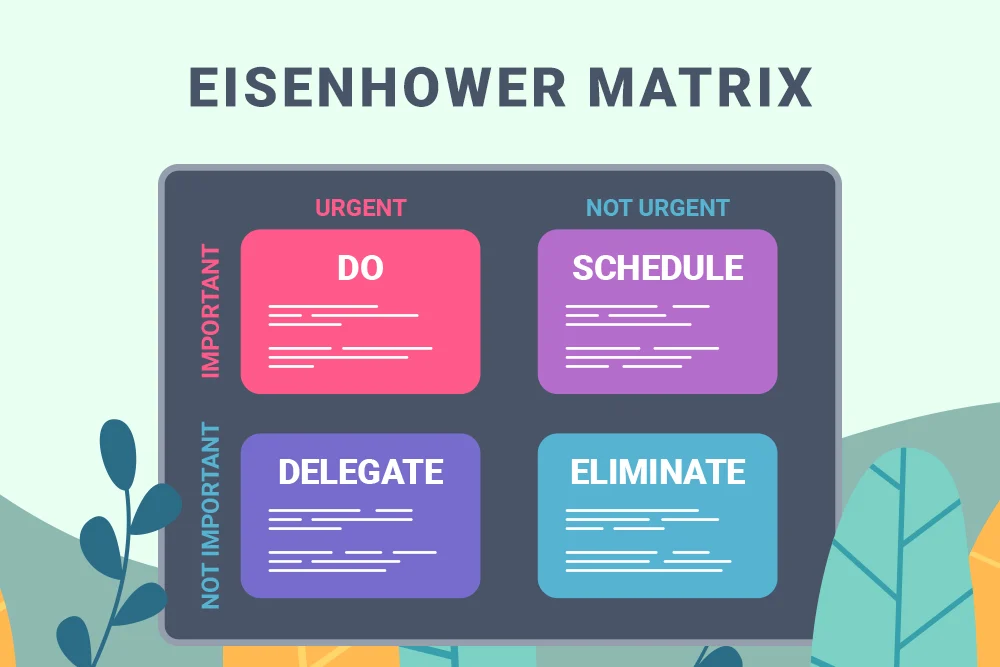It’s one of those days.
You are tired after attending back-to-back meetings, and you have some urgent deliverables to work on. Unfortunately, you can’t because you keep receiving emails from external parties. While you are struggling with your workload, your colleagues start messaging you about a project. At the same time, your boss also decides to assign you more work.
Such situations do happen at work and it’s natural to feel overwhelmed. To add to it, working from home in the new normal, doesn’t make things any easier. Research shows that not only are Singaporeans working longer hours, but they also report feeling more stressed and overworked. There’s also the risk of burnout with working overtime almost every day.
Perhaps the answer to coping is not working longer hours, but working smarter. Here’s how.
1. Prioritise, prioritise, prioritise
Research shows that when you have multiple tasks on your plate, you may be tempted to do those that are easiest first. But doing so may decrease your productivity because high-value tasks need more of your focus and energy.
To manage your time more effectively, consider using the Eisenhower matrix.

Also known as the Urgent-Important matrix, the Eisenhower matrix has four quadrants that classify tasks based on their urgency and importance. The first quadrant contains the tasks that you should do immediately as they are urgent and important, such as high-priority requests from your bosses that are due tomorrow.
The second quadrant includes items that are important but not urgent. For instance, working on a new marketing plan that is due in a week’s time.
The third quadrant contains items that should be delegated, if possible. These items are urgent but not important. For instance, data entry for projects that are due soon.
The items in the last quadrant are the ones that you need to eliminate from your to-do list as they are neither important nor urgent. For instance, clearing your office junk and spam mail folder.

2. Batch activities for greater productivity
Throughout your workday, you may have to handle a range of tasks, from researching, planning, and budgeting, to replying to emails. Instead of multitasking, try batching, where you work on similar tasks together. Multitasking causes your productivity to decline because it takes time to switch attention from one project to another.
So, the next time an email comes in, resist the urge to reply immediately and try scheduling specific timings to reply to your emails. Another way to use batching is to schedule meetings back-to-back, or set aside a specific time for activities that require thought, such as writing and planning.

3. Give yourself a kopi break
Going downstairs to buy bubble tea or having a kopi break may seem counterintuitive when you are pressed for time, but research suggests that taking a break can enhance your performance. A study showed that participants who took a short break while working on a task maintained their level of performance for a 40-minute stretch. In contrast, the work performance of individuals who didn’t take breaks declined over time.
Explaining the findings, Mr Alejandro Lleras, a psychology professor at the University of Illinois at Urbana-Champaign said: “We know that after about 30 minutes, concentration starts to decrease, so it’s important to take small breaks to stay focused on your main task.”

4. Manage expectations and negotiate
As much as you’d like to be the perfect employee, it is not humanly possible to act on everything immediately. That’s why you need to manage other people’s expectations and negotiate a reasonable timeline and workload.
Consider scheduling a time to update your supervisor on your workload. During the meeting, let him or her know the amount of time required for all the tasks. Then, suggest a more feasible deadline.
There will always be good days and difficult days at work. On the difficult ones, keep these strategies in mind to maintain your cool and perform your tasks more effectively.
















